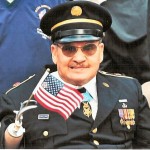Warning: in_array() [function.in-array]: Wrong datatype for second argument in /home/african/public_html/wp-content/plugins/yet-another-related-posts-plugin/classes/YARPP_Core.php on line 1009
Warning: in_array() [function.in-array]: Wrong datatype for second argument in /home/african/public_html/wp-content/plugins/yet-another-related-posts-plugin/classes/YARPP_Core.php on line 1009
Warning: in_array() [function.in-array]: Wrong datatype for second argument in /home/african/public_html/wp-content/plugins/yet-another-related-posts-plugin/classes/YARPP_Core.php on line 1009
Warning: in_array() [function.in-array]: Wrong datatype for second argument in /home/african/public_html/wp-content/plugins/yet-another-related-posts-plugin/classes/YARPP_Core.php on line 1009
Warning: in_array() [function.in-array]: Wrong datatype for second argument in /home/african/public_html/wp-content/plugins/yet-another-related-posts-plugin/classes/YARPP_Core.php on line 1009
Warning: in_array() [function.in-array]: Wrong datatype for second argument in /home/african/public_html/wp-content/plugins/yet-another-related-posts-plugin/classes/YARPP_Core.php on line 1009
November 24, 1969 Webster Anderson received the Medal of Honor, America’s highest military decoration, from President Richard M. Nixon.
Anderson was born July 15, 1933 in Winnsboro, South Carolina. He joined the United States Army in 1953 and served during the Korean War. By October 15, 1967, he was serving as a staff sergeant in Battery A, 2nd Battalion, 320th Field Artillery Regiment, 101st Airborne Infantry Division during the Vietnam War. On that day, his actions earned him the medal.
His citation partially reads: “During the early morning hours Battery A’s defensive position was attacked by a determined North Vietnamese Army Infantry unit supported by heavy mortar, recoilless rifle, rocket propelled grenade and automatic weapon fire. The initial onslaught breached the battery defensive perimeter.
Sfc. Anderson, with complete disregard for his personal safety, mounted the exposed parapet of his howitzer position and became the mainstay of the defense of the battery position. Sfc. Anderson directed devastating direct howitzer fire on the assaulting enemy while providing rifle and grenade defensive fire against enemy soldiers attempting to overrun his gun section position. While protecting his crew and directing their fire against the enemy from his exposed position, 2 enemy grenades exploded at this feet, knocking him down and severely wounding him in the legs.
Despite the excruciating pain and though not able to stand, Sfc. Anderson valorously propped himself on the parapet and continued to direct howitzer fire upon the closing enemy and to encourage his men to fight on. Seeing an enemy grenade land within the gun pit near a wounded member of his crew, Sfc. Anderson heedless of his own safety, seized the grenade and attempted to throw it over the parapet to save his men. As the grenade was thrown from the position, it exploded and Sfc. Anderson was again grievously wounded.
Although only partially conscious and severely wounded, Sfc. Anderson refused medical evacuation and continued to encourage his men in the defense of the position. Sfc. Anderson, by his inspirational leadership, professionalism, devotion to duty and complete disregard for his welfare, was able to maintain the defense of his section position and to defeat a determined enemy attack.” Despite losing both of his legs and part of an arm, Anderson survived his wounds and retired from the army. Anderson died August 30, 2003.


No comments yet.